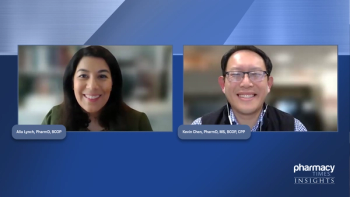
Building Trust With Vaccine-Hesitant Patients
Panelists discuss that building trust with vaccine-hesitant patients requires pharmacists to slow down, listen empathetically, and ask open-ended questions to understand individual concerns; by addressing specific fears with clear, tailored information and practicing cultural sensitivity, pharmacists can foster ongoing, respectful dialogue that gradually encourages vaccine acceptance.
Episodes in this series

Building trust with vaccine-hesitant patients starts with taking the time to truly connect and listen. In busy pharmacy settings, it’s easy to get caught up in the fast pace and heavy workload, which can make deep conversations challenging. However, slowing down to engage with patients on a personal level helps create small moments of connection and trust. By asking open-ended questions and listening empathetically, pharmacists can better understand where patients are coming from—their concerns, fears, or misinformation—and respond in a way that respects their perspective rather than pushing or arguing. This approach encourages patients to open up, making it easier to address their hesitancy.
Finding the root cause of vaccine hesitancy is key. Sometimes patients have specific fears, such as worrying that a new vaccine is based on mRNA technology like the COVID vaccines or concerns about adverse effects. Pharmacists who probe gently, offering clear, factual information tailored to those concerns, can help ease fears. For example, clarifying that a vaccine is not mRNA or presenting options without certain adverse effects shows patients that their worries are heard and taken seriously. It’s also important to recognize that hesitancy may not always have a clear reason—even patients might not fully understand their own reluctance. Repeated conversations, much like motivational interviewing used in other health care settings, can gradually help patients move closer to acceptance over time.
Cultural sensitivity plays a vital role in trust-building, too. Different communities have varied histories and attitudes toward vaccines and health care in general. Some cultures may be more skeptical due to past experiences or beliefs, while others might be very accepting. Understanding these differences and meeting patients where they are—whether that means ongoing dialogue over weeks or simply providing the right information when the time feels right—shows respect and empathy. Ultimately, trust grows from consistent, patient-centered communication that acknowledges individual concerns and cultural backgrounds.
Newsletter
Stay informed on drug updates, treatment guidelines, and pharmacy practice trends—subscribe to Pharmacy Times for weekly clinical insights.


























